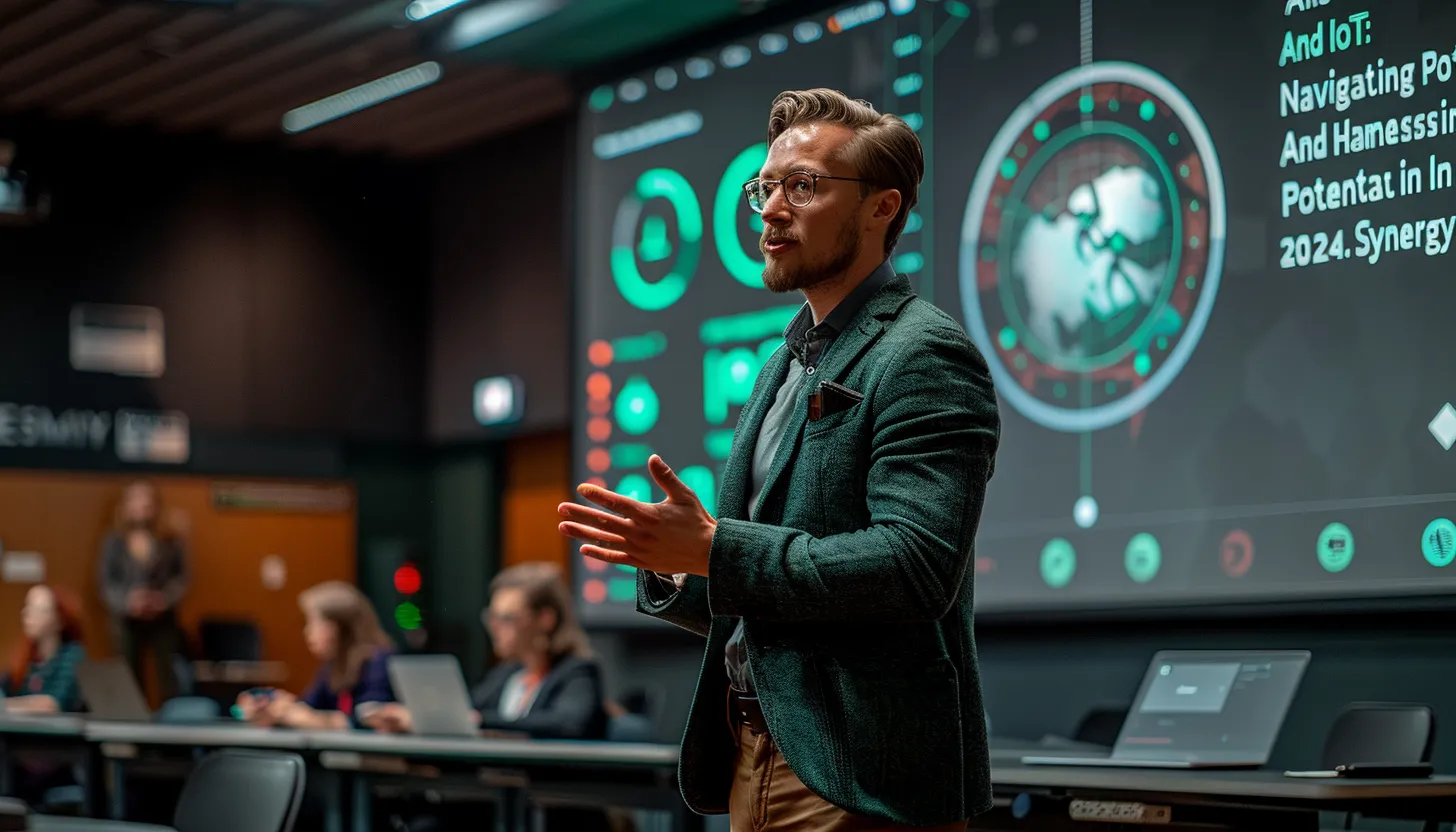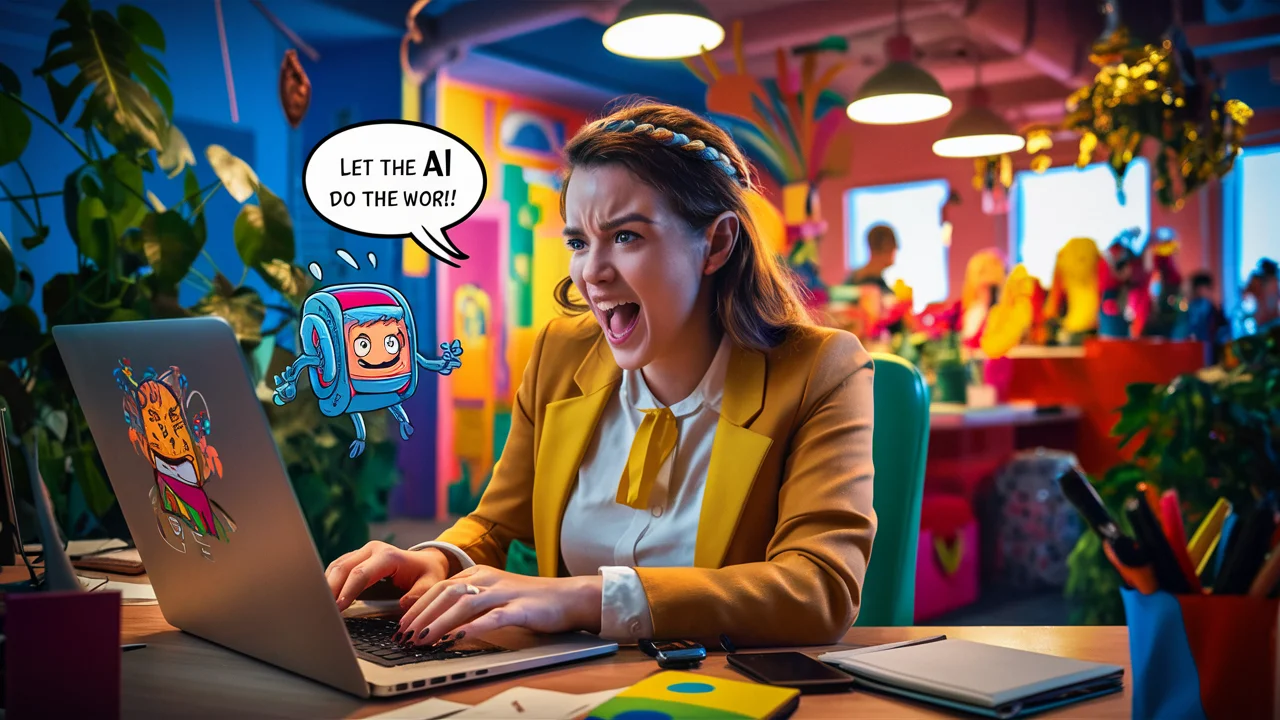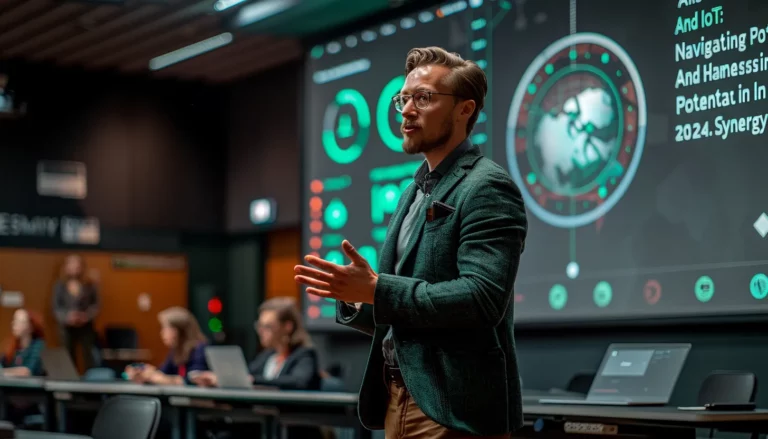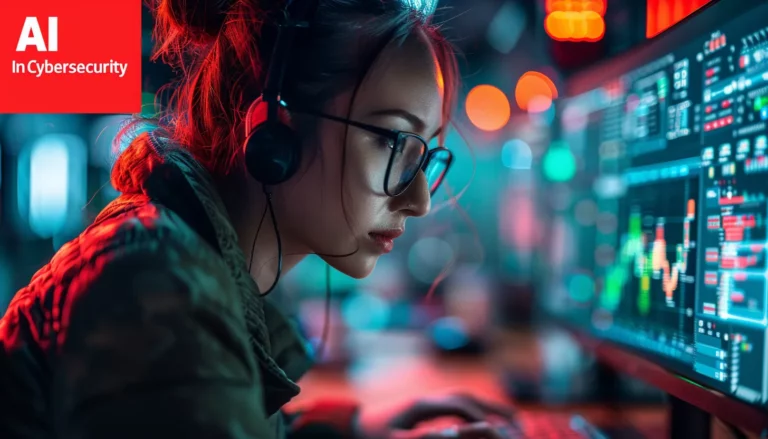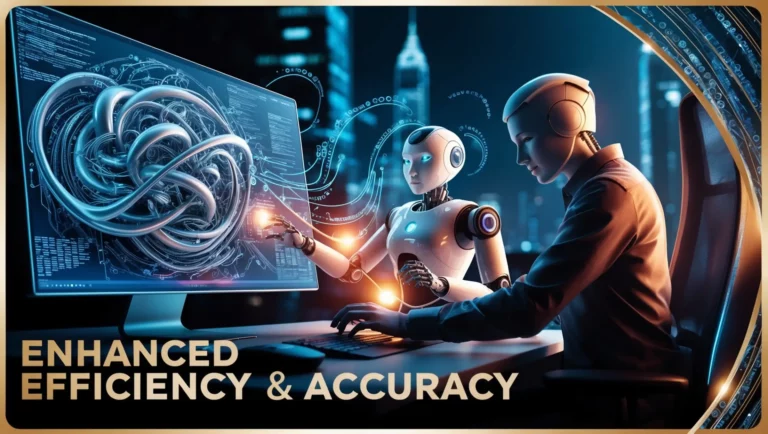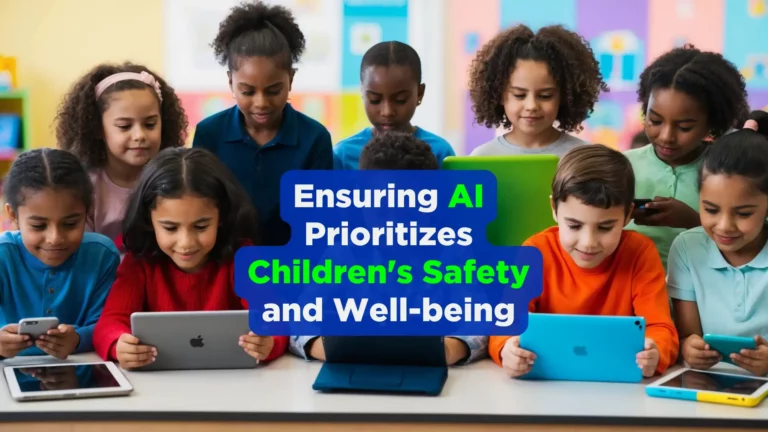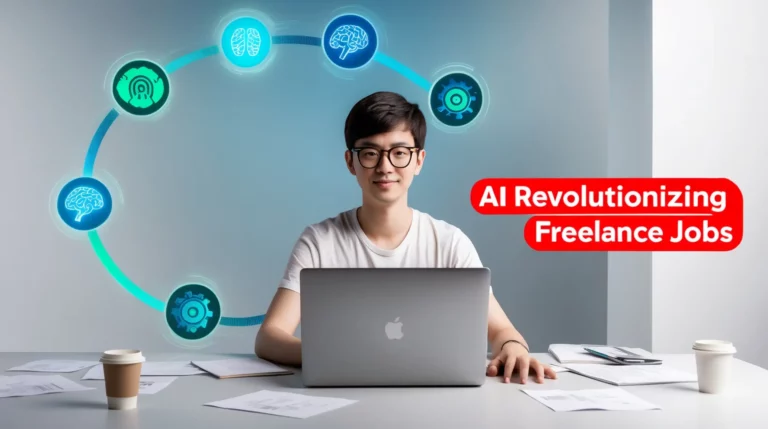Transforming Urban Living: AI and IoT for Sustainable Smart Cities
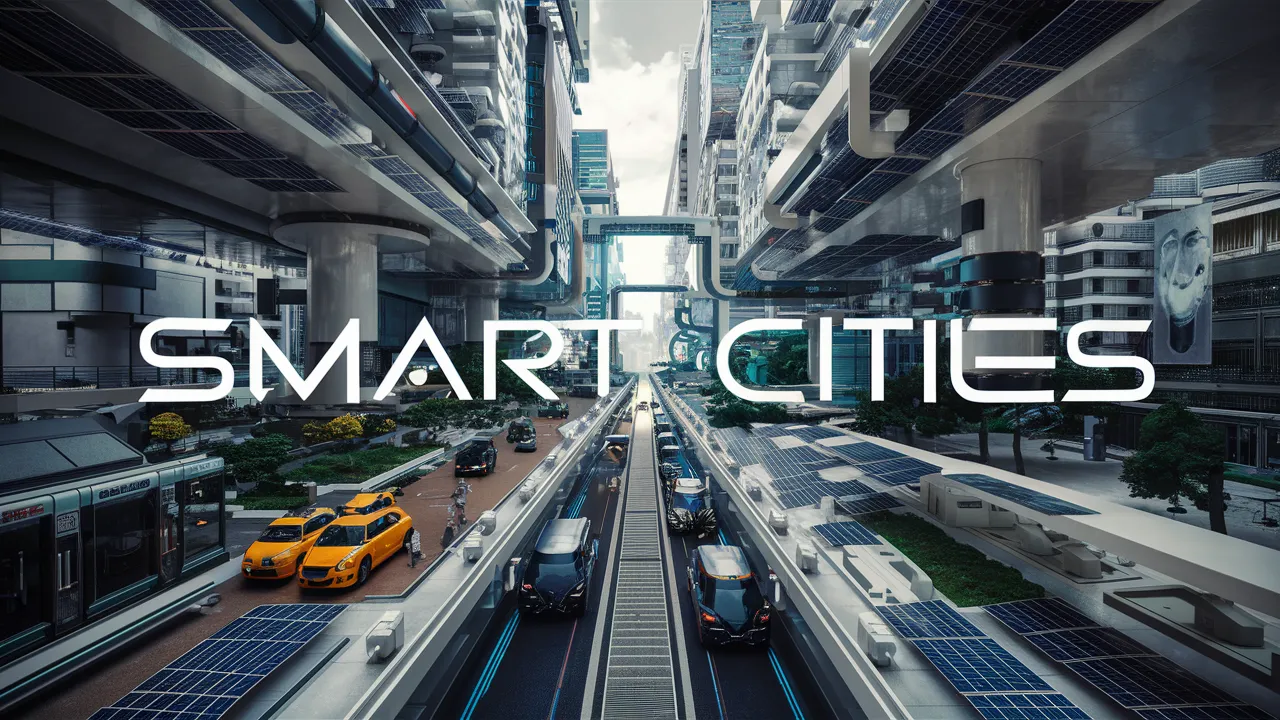
Smart cities have gained traction recently as urban areas grapple with rapid population growth and resource constraints. Smart cities leverage technologies such as artificial intelligence (AI) and the Internet of Things (IoT) to enhance sustainability and efficiency in urban living.
Our audience supports Ahcrypto. When you click on the links on our site, we may earn an affiliate commission at no extra cost to you. Learn More.
Key Takeaways
Introduction to Smart Cities
Smart cities are urban environments that harness data-driven technologies like AI and IoT to optimize urban planning, public services, and infrastructure management. By integrating advanced analytics and real-time sensor data, smart cities aim to improve the quality of life for their residents while promoting sustainability and efficiency.
Stay Updated with the Latest Digital Marketing Tips!
Subscribe to our newsletter and receive our exclusive guide, “Top 10 Digital Marketing Strategies for Success,” straight to your inbox
Role of AI and IoT in Sustainable Development
Applying AI and IoT in smart cities is crucial in driving sustainable development. These technologies enable cities to gather vast amounts of data from IoT devices and sensors, allowing for more informed decision-making in energy consumption, waste management, and urban transportation. By leveraging AI systems for analysis and prediction, cities can optimize resource allocation and reduce environmental impact.
Benefits of Implementing AI and IoT in Urban Environments
Innovative city applications powered by AI and IoT technologies offer a range of benefits for residents and city administrators alike. Integrating AI and IoT transforms urban living by making cities more creative, efficient, and sustainable. These benefits range from enhancing public safety through intelligent surveillance systems to improving citizen engagement through interactive platforms.
Artificial Intelligence in Smart Cities
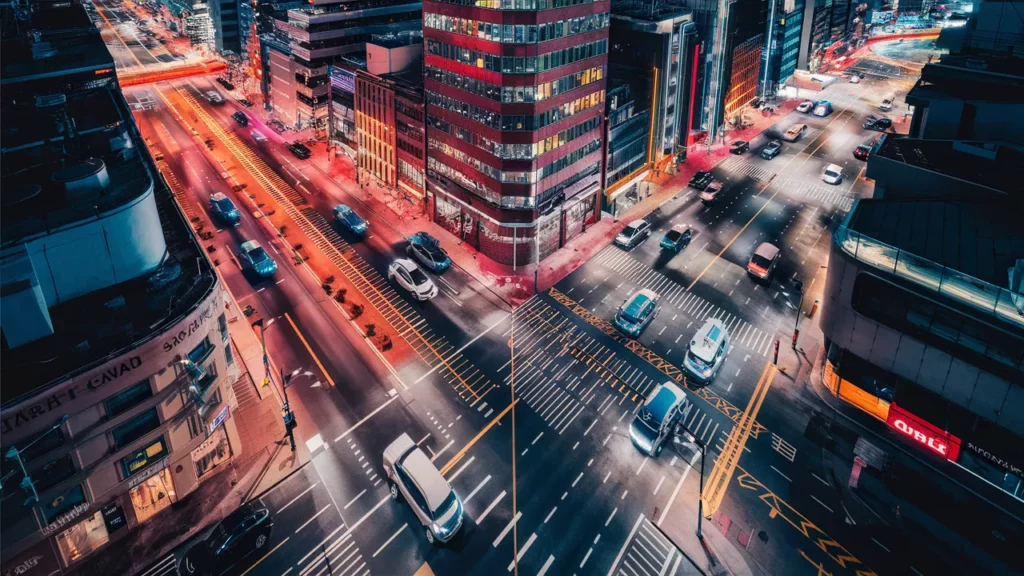
Artificial intelligence (AI) revolutionizes how intelligent cities operate, offering innovative solutions to many urban challenges. Using AI technologies, cities can optimize urban planning, public services, and infrastructure management. Real-time data from sensors and IoT devices enable cities to make data-driven decisions efficiently and effectively.
Applications of AI in Urban Environment
The application of AI in urban environments spans various sectors, including energy consumption, waste management, and urban transportation. AI systems analyze vast amounts of data from IoT devices to enhance resource allocation and reduce environmental impact. By incorporating AI, cities aim to become smarter, more sustainable, and more efficient.
AI for City Management and Optimization
AI plays a critical role in city management by providing insights that help optimize processes and services. From intelligent urban infrastructure to innovative transportation solutions, AI-driven technologies improve public safety, citizen engagement, and overall quality of city life. Deploying innovative city initiatives powered by AI can improve urban landscapes.
Generative AI for Urban Planning
Generative AI has the potential to revolutionize urban planning by creating intelligent solutions for designing sustainable cities. By developing innovative city solutions, cities can leverage generative AI to streamline urban development and improve urban environments. AI and machine learning advancements are reshaping urban landscapes, making cities more livable and efficient.
How to Get Started in Generative AI: A Guide for Insurance Leaders
Generative AI has gained significant attention in various industries, including insurance. Insurance leaders can explore the potential of generative AI to enhance processes like risk assessment, fraud detection, and customer service. By leveraging generative AI algorithms, insurers can automate underwriting processes, analyze vast amounts of data for predictive modeling, and create personalized customer experiences. Understanding the basics of generative AI and its applications in the insurance sector and implementing pilot projects can help insurance leaders harness the power of this innovative technology for sustainable growth and improved operational efficiency.
Internet of Things (IoT) in Sustainable Cities

IoT Solutions for Enhancing Urban Infrastructure
The Internet of Things (IoT) offers innovative solutions for enhancing urban infrastructure in sustainable cities. IoT devices such as sensors and smart meters can collect real-time data on city operations, including energy consumption, waste management, and traffic flow. By analyzing this data, city planners can optimize resource allocation, improve service delivery, and reduce environmental impact. IoT solutions enable the development of intelligent infrastructure that enhances the quality of urban living while promoting sustainability and efficiency.
Role of Analytics in IoT for Smart City Development
Analytics plays a crucial role in leveraging IoT to develop smart cities. By applying advanced analytics techniques to the data collected from IoT devices, city authorities can gain valuable insights into urban trends, citizen behavior, and infrastructure performance. These insights help make informed decisions, optimize city services, and enhance overall urban development. Analytics in IoT is instrumental in transforming cities into intelligent, data-driven environments that improve the quality of life for residents.
Future Trends in IoT for Sustainable Urban Living
The future of IoT in sustainable urban living holds promising trends that can revolutionize city infrastructure. From integrating AI and machine learning algorithms into IoT networks to expanding intelligent city initiatives, the evolution of IoT technologies will drive sustainability, innovation, and efficiency in urban environments. As cities must address the challenges of rapid urbanization and climate change, adopting IoT solutions coupled with advanced analytics will be paramount in shaping the cities of tomorrow toward a more sustainable and livable future.
Mastering The Art Of Smart City Management: Tips And Best Practices

As smart cities evolve, mastering the art of intelligent city management becomes essential for urban planners and administrators. Implementing best practices can help cities optimize resources, enhance sustainability, and improve overall efficiency. One important tip is to leverage artificial intelligence (AI) and Internet of Things (IoT) technologies to streamline urban planning, public services, and infrastructure management. By utilizing real-time sensor data and advanced analytics, cities can make data-driven decisions that benefit residents and the environment.
Forecasting The Future Of Smart Cities
Looking ahead, the future of intelligent cities holds immense potential for innovation and progress. With the continued advancement of AI and IoT technologies, smart cities are poised to become even more sustainable, efficient, and interconnected. The integration of generative AI for urban planning and the expansion of IoT solutions for innovative city development are expected to play a significant role in shaping the cities of tomorrow. As cities strive to address the challenges of urbanization and climate change, adopting intelligent technologies will be crucial in creating more livable and resilient urban environments.
Conclusion
As the smart cities market continues to grow, integrating AI and IoT technologies becomes increasingly vital in addressing the challenges of rapid urbanization and resource constraints. Smart cities examples from around the world highlight the transformative impact of these technologies on urban living. In the United States, numerous smart cities initiatives demonstrate how AI and IoT can enhance sustainability, efficiency, and quality of life. By leveraging data-driven insights and innovative solutions, smart cities pave the way for a more sustainable and connected future, ensuring that urban environments remain resilient and adaptable in the face of evolving demands.
Keep updated on all of our latest tips here.
FAQ

Scott Evans
Hey there, I’m Scott Evans, your friendly guide at AhCrypto! I’m all about breaking down complex SaaS, AI, and tech topics into digestible insights. With me, you’re not just keeping up with the tech world; you’re staying ahead of the curve. Ready to dive into this exciting journey? Let’s get started!

